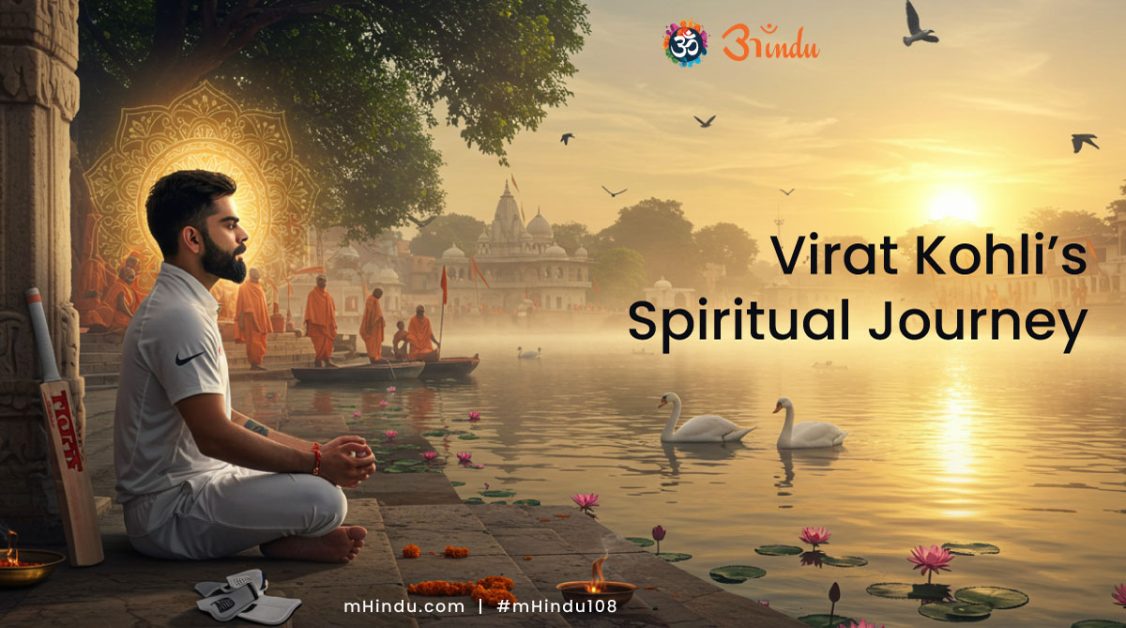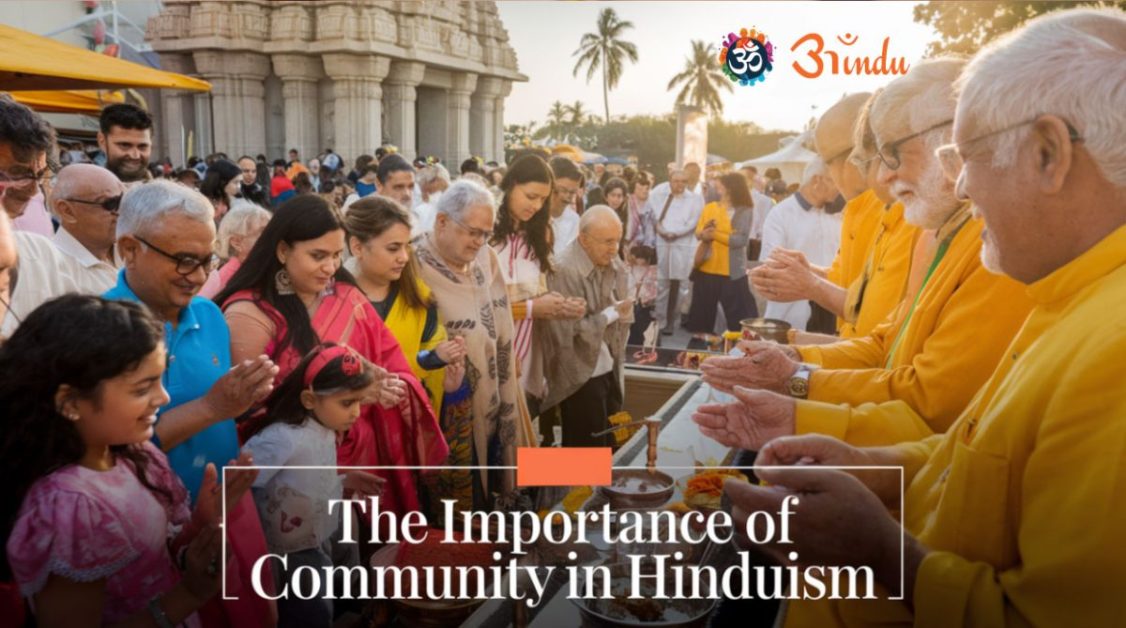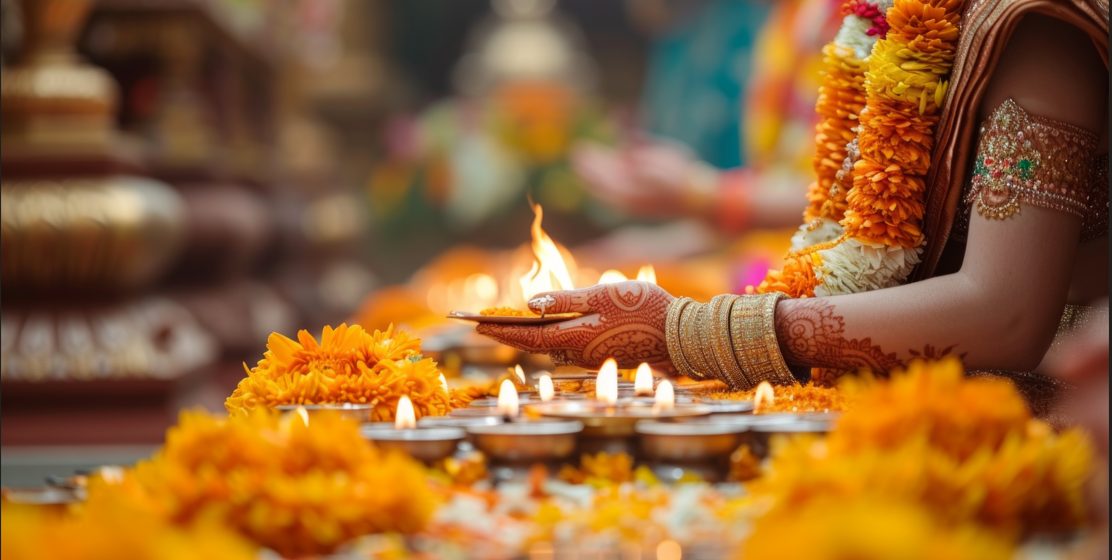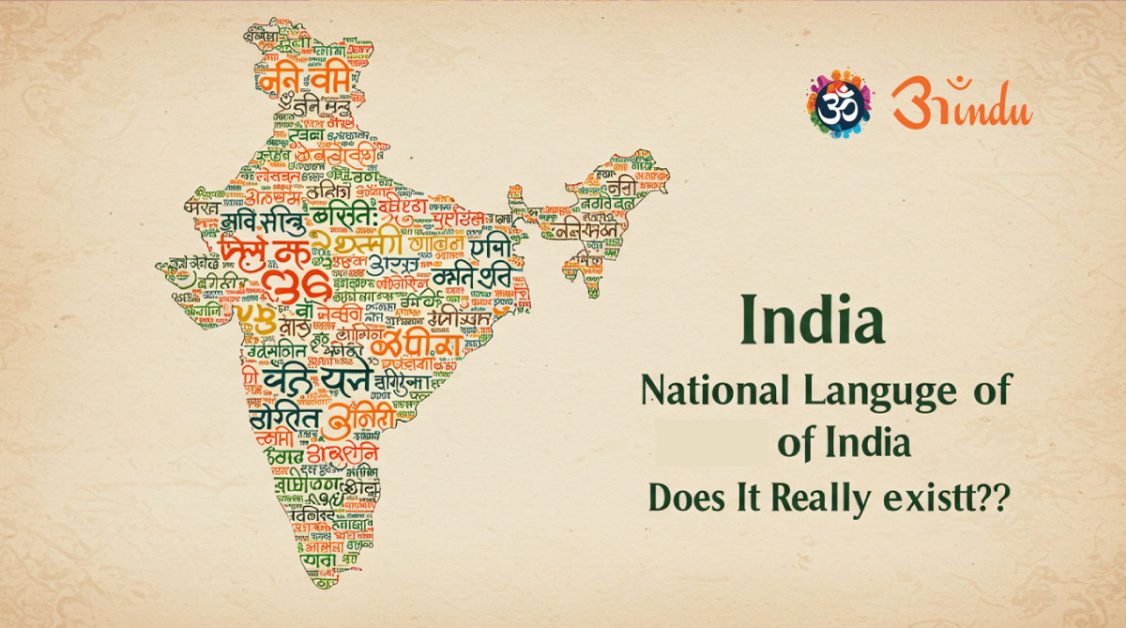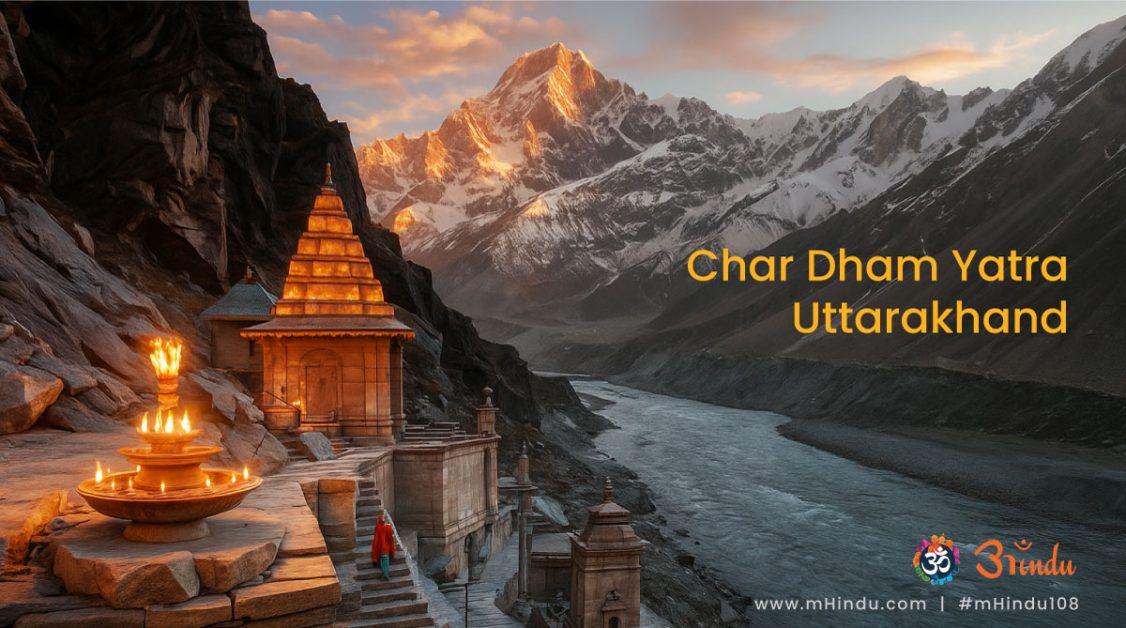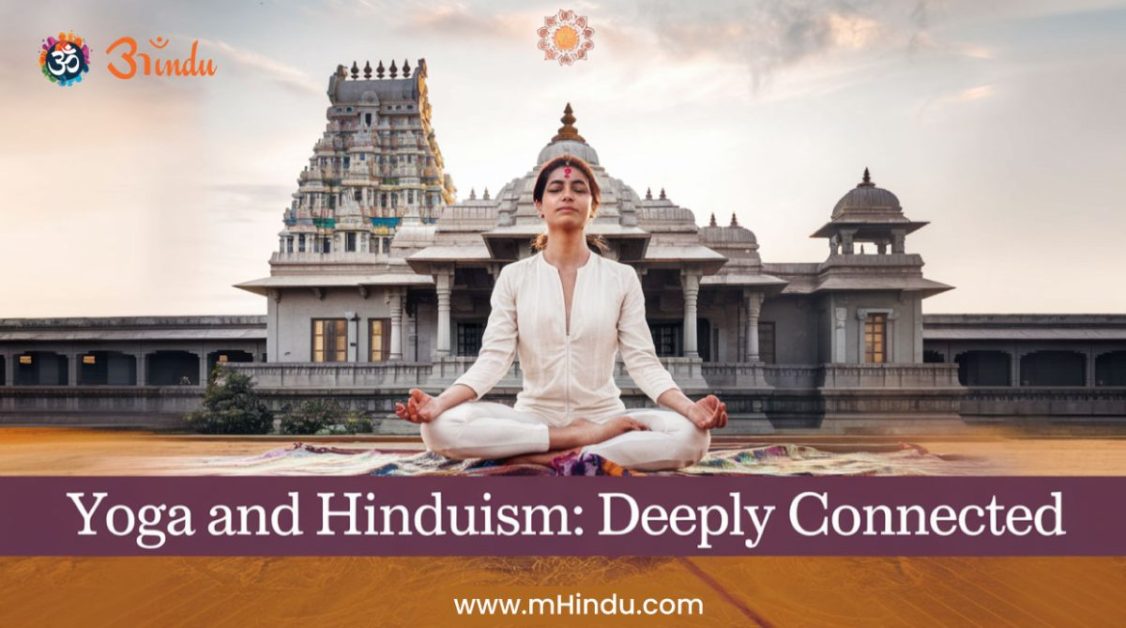
Yoga, a practice renowned worldwide for its physical and mental benefits, has its roots deeply intertwined with Hinduism. While often practiced as a form of exercise, yoga and Hinduism share a profound connection that extends far beyond physical postures. This blog post explores seven key ways in which these two ancient traditions are deeply connected.
Explore Blog Content
ToggleThe Spiritual Foundation of Yoga
While yoga has gained popularity as a fitness regimen, its origins lie in Hindu philosophy and spirituality. The union of mind, body, and spirit that yoga seeks is fundamentally rooted in Hindu teachings. Understanding the link between yoga and Hinduism provides a richer context for appreciating the practice.
"When you inhale, you are taking in the strength from God. When you exhale, you are giving out the love and service to God."Krishnamacharya
7 Ways Yoga and Hinduism are Connected
Here are seven significant ways in which yoga and Hinduism are deeply connected:
- Shared Philosophical Roots: Yoga’s philosophical underpinnings are drawn from various schools of Hindu philosophy, including Samkhya, Vedanta, and Tantra. These philosophies provide the framework for understanding the nature of reality, the self, and the path to liberation.
- The Concept of Brahman: Both yoga and Hinduism recognize Brahman as the ultimate reality, the source of all creation. Yoga aims to unite the individual self (Atman) with Brahman, a concept central to Hindu spirituality.
- The Importance of Dharma: Dharma, the principle of righteousness and duty, is a guiding principle in both yoga and Hinduism. Living a dharmic life, which includes ethical conduct and fulfilling one’s responsibilities, is considered essential for spiritual progress in both traditions.
- The Role of Karma: The law of karma, which states that every action has consequences, is a fundamental belief in both yoga and Hinduism. Understanding karma encourages mindful action and emphasizes personal responsibility for one’s choices.
- The Practice of Meditation: Meditation is an integral part of both yoga and Hinduism. It is a means of quieting the mind, cultivating self-awareness, and connecting with the divine. Meditation is often seen as a key step on the path to spiritual liberation.
- The Use of Mantras: Mantras, sacred sounds or syllables, are used in both yoga and Hindu rituals. Chanting mantras is believed to have a powerful effect on the mind and body, promoting healing, focus, and spiritual awakening.
- The Goal of Moksha (Liberation): While yoga is often practiced for its physical and mental benefits, its ultimate goal, like that of Hinduism, is moksha – liberation from the cycle of birth and death. This liberation is achieved through self-realization and union with the divine.
"The eight limbs of yoga, as described in the Yoga Sutras of Patanjali, provide a comprehensive framework for ethical living, self-discipline, and spiritual development, reflecting the broader principles of Hindu dharma.
Yoga as a Path to Spiritual Growth
For Hindus, yoga is more than just exercise; it’s a spiritual practice that can lead to deeper self-understanding and connection with the divine. It’s a way to integrate the body, mind, and spirit, fostering a sense of wholeness and well-being.
The Integration of Yoga and Hindu Practices
Many Hindus integrate yoga into their daily routines, combining it with prayer, meditation, and other spiritual practices. This holistic approach to spiritual development emphasizes the interconnectedness of all aspects of life.
Conclusion
The connection between yoga and Hinduism is profound and multifaceted. Understanding this connection provides a deeper appreciation for the rich philosophical and spiritual underpinnings of yoga. It reminds us that yoga is not just a physical practice but a pathway to self-discovery and spiritual awakening.
FAQs Section
- Is yoga a religion?
Yoga is not a religion, but it is deeply connected to Hindu philosophy and spirituality. - What is the main goal of yoga?
While physical and mental benefits are important, the ultimate goal of yoga is spiritual liberation (moksha). - What is the connection between yoga and Hindu philosophy?
Yoga’s philosophical foundations are drawn from various schools of Hindu thought, including Samkhya, Vedanta, and Tantra. - How is karma related to yoga?
The concept of karma emphasizes mindful action and personal responsibility, which are important aspects of both yoga and Hinduism. - What role does meditation play in yoga and Hinduism?
Meditation is an integral practice in both traditions, used for calming the mind and connecting with the divine. - Are mantras important in yoga?
Yes, mantras are often used in yoga practice to enhance focus, promote healing, and deepen the spiritual experience. - Can yoga be practiced by people of other faiths?
Yes, the physical and mental benefits of yoga can be enjoyed by anyone, regardless of their religious beliefs. However, understanding its Hindu roots can enrich the practice. - How can I learn more about the spiritual aspects of yoga?
Reading books on yoga philosophy, studying Hindu scriptures, and seeking guidance from experienced teachers can deepen your understanding.


